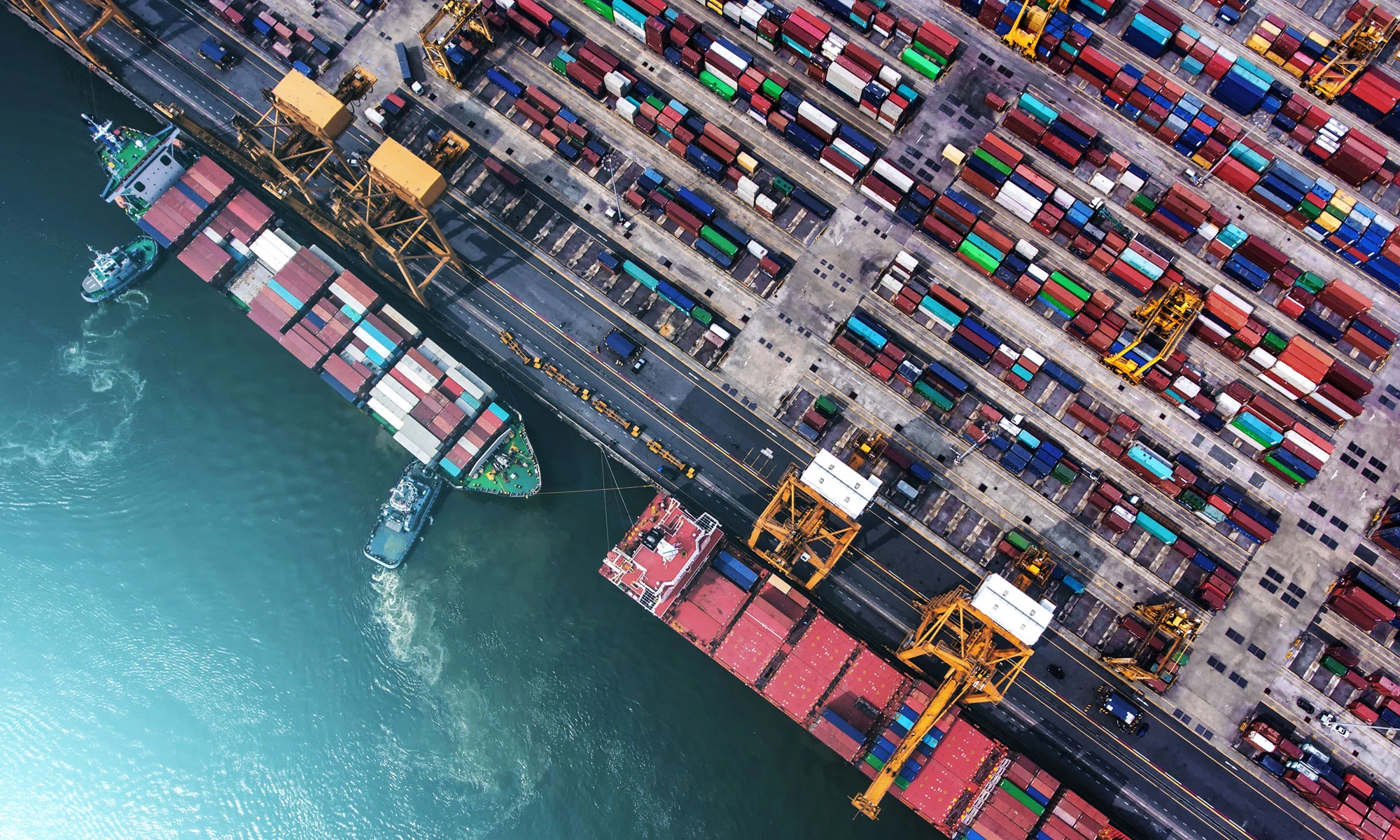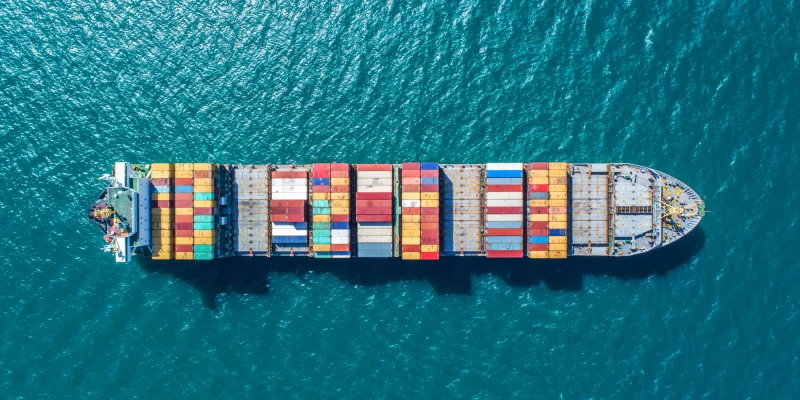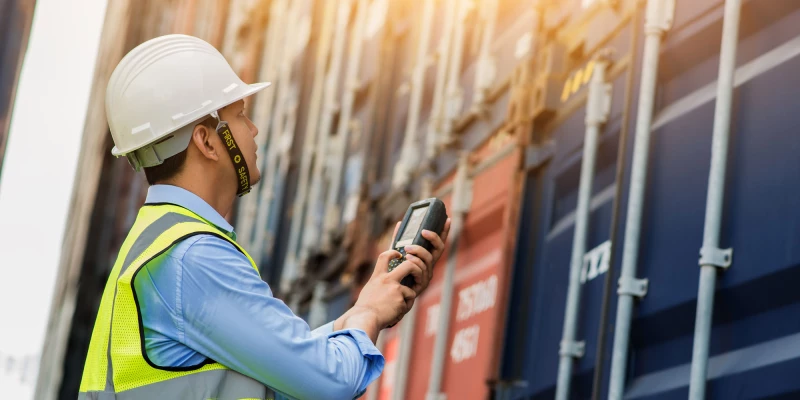

With the new EU Packaging Regulation and the PPWR requirements, companies are facing major challenges - and opportunities. Our Insight provides a practical insight into how you can future-proof your packaging strategy, comply with legal requirements and score points in the long term. Discover which steps and solutions will make the difference and make your company fit for the future.
Read more
Data is a central component of the digital economy and an essential resource for securing the ecological and digital transformation, which has exponentially increased in quantity in recent years. Regulating data access and use is essential to extract value from all data. Based on Article 114 of the Treaty on the Functioning of the European Union, the Data Act defines the framework for handling data and promotes fairness in the data economy as well as the availability of data.
Read moreThe customs tariff number (often called “HS Code”) consists of an 8 or 11-digit combination of numbers and is used, among other things, when goods are shipped.
Read moreThis is a question that concerns many manufacturing companies and is becoming increasingly important, especially regarding their orientation on sustainability. If one wanted to push it to the extreme, a conflict of interests between sustainability and safety could be mentioned; in the following, however, we will focus purely on the well-founded legal framework and practical experience.
Read more
Triman is a recycling symbol required by law under French environmental legislation since January 1, 2015. Originally developed by the French Environment and Energy Management Agency (ADEME), it identifies products and/or packaging that are recyclable and should be sent for separate collection. For example, affected products: Clothing, footwear, furniture, tires, paper products.
Read moreSince 2006, the placing on the market and the associated requirements for batteries and accumulators as well as spent batteries and accumulators have been regulated by Directive 2006/66/EC. The Directive has been amended several times, most recently in 2013. On December 10, 2020, a proposal for the new Battery Regulation was published by the European Commission, with its new regulation repealing the existing Battery Directive 2006/66/EC. This draft proposal is scheduled to enter into force on January 1, 2022.
Read moreThe new supply chain law on compliance with human rights along the entire supply chain is to be passed by the end of 2021. With the new law, small to large companies will be confronted with new requirements. Now they are supposed to take extensive compliance measures (such as setting up a risk management system, conducting regular risk analyses, adopting a policy statement, etc.) to ensure the protection of human rights in connection with related supply chains.
Read moreWhat do the candidate list, the list of substances subject to authorization (Annex XIV) and the restrictions on the manufacture, placing on the market and use of certain dangerous substances, mixtures and articles (Annex XVII) mean? Read about the structure and pollutant management of REACH Regulation (EC) No. 1907/2006, with a special focus on the authorization and restriction of certain substances.
Read more
On July 16, 2021, the new Market Surveillance Regulation (MÜ VO) will come into force. Since the beginning of the year, some partial provisions have already been in force, such as the Union network for product conformity in the EU (EU single window). The aim of the new regulation is to strengthen conformity controls for products brought to the EU market through e-commerce (online) or stationary trade (offline). In addition to the control of stationary stores (offline), online platforms such as Amazon will also be monitored.
Read moreThe withdrawal of UK from EU has its impact in many fields as well as in requirements of Product Compliance. As a consequence CE Mark will be replaced with the new UKCA Mark. From 1 January 2021, Products of the same construction and design accessing both UK and EU Markets will require different Conformity Mark.
Read more“Vacations at home” – this is probably one of the keywords in summer/autumn 2020. In currently difficult and challenging times, a change of scenery is often the only possibility to take a little time out of the dreary everyday life. The unbroken travelling is causing record sales and turnover, especially in the caravaning industry. The manufacturers not only deliver their leisure vehicles and the corresponding accessories to Germany but also the export is rising to new dimensions. However, this also involves risks for the manufacturers with regard to technical compliance requirements.
Read more
On July 31, one of our longest projects successfully ended. During the last five years we have supported and advised BMW Aftersales on regulatory requirements. The Brazilian market with the “INMETRO” certification system was one of our core markets.
Read moreThe European REACH Regulation (Registration, Evaluation, Authorisation of Chemicals) lays down rules for the registration, evaluation, authorisation and restriction of chemicals. The REACH Regulation (EC) No. 1907/2006 applies to all member states of the EU. In a global comparison, the Regulation (EC) No. 1907/2006 is considered one of the strictest regulations for chemicals in the world.
Read moreAs early as 2018, the EU Commission completed the evaluation of the biocide 2-methyl-2H-isothiazol-3-one, MIT for short, and determined that it is to be classified as extremely allergenic.
Read moreOn 20.06.2019 the EU Commission published the EU Regulation 2019/1020 on market surveillance and conformity of products. This shows that the inspection of conforming products is currently gaining in importance. This applies in particular to all CE-relevant products. With a CE marking, the manufacturer, marketer or authorized representative of the EU declares in accordance with EU regulation 765/2008 and decision 768/2008 that a product complies with all CE-relevant EU directives and their harmonization regulations. The EU directives and harmonized standards are continuously adapted. In the following we have summarized the most important innovations.
Read more
Due to the corona situation, the Chinese government has temporarily relaxed the CCC certification process in certain areas and published a corresponding announcement (No. 2020/8) on April 17, 2020.
Read moreThe rumours of an extension of the CCC scope were finally confirmed. Brake linings will be subject to CCC certification in the future.
Read moreOn 15 May 2019, the European Commission published “Recommendation EU 2019/794 on a coordinated control plan for the determination of the presence of certain substances migrating from materials and articles intended to come into contact with food”.
Read more
The latest technical regulations for radio electronic devices came into force in Ukraine on 01.04.2018 (Ukraine RED). Automotive spare parts are currently exempted, but will be included into the scope starting from 01.01.2020.
Read moreOn October 17th, CNCA published Announcement No. 44 with further adjustments to the scope to be CCC certified. With immediate effect, interior materials and door locks and hinges are excluded from the CCC certification scope.
Read moreMotorcycle clothing is intended to provide the rider with a certain level of protection without impairing his mobility while riding. It must be designed to provide precise protection against the risks that may occur during different riding activities. Since April 2018, motorcycle clothing has been subject to the “(EU) 2016/425 Personal Protective Equipment” regulation and must therefore be CE certified.
Read moreAs of 01.09.2017, the test standard NEFZ or NEDC (New European Driving Cycle) effective since 1992 was replaced by the test standard WLTP (Worldwide harmonized Light vehicles Test Procedure). In the course of the multi-stage implementation, stricter regulations came into force at the beginning of 2019. RDE (Real Driving Emissions), a practice-oriented emission testing on the road, must also be carried out.
Read more
The licensing for the import of aluminum wheels to the Russian Federation from non-member states of the Eurasian Economic Union is in force untill October 9 2019.
Read moreIn December 2018, CNCA published the second change to the existing CCC-relevant automotive portfolio in 2018. Announcement No. 29 exempts retro-reflectors and reflectors from the certification requirement.
Read moreThe revision of the “Regulation for Motor Vehicle & Vehicle Parts Certification and Investigation”, which came into force on 21.08.2019, contains fundamental changes to the KC certification for South Korea.
Read more
Announcement No. 11, published in June 2018, removed some product categories from the scope of CCC relevant automotive components such as fanfare or fuel tanks and allowed for self-certification of interior components and locks/hinges. This entails various implementation and change scenarios.
Read moreThe SNI (Indonesian National Standard) marking of certain vehicle parts and components serves as proof of compliance with the corresponding Indonesian SNI standards and required Indonesian product and factory audits. Once the relevant certificates have been issued and the labelling affixed to the product, products can be imported and sold in the Republic of Indonesia.
Read moreAudio/video components and similar electronic equipment (from 26.06.2019) as well as portable primary batteries may only be placed on the market in Indonesia if they comply with the requirements of the SNI certification scheme.
Read moreThe widespread use of international standards and flexible approval procedures are key elements for the industry to make the most of global supply chains, economies of scale and rapid innovation. The EU and Korea generally apply similar requirements based largely on international standards. Market access with certain products requires correct KC certification.
Read more
This text summarizes the current situation on replacement brake pads from a legal point of view. Vehicle brakes (and brake linings are part of the braking system) are in many cases type approved according to UNECE Reg. 13-H.
Read moreIn October 2018, a draft regulation on inmetro certification of trailer couplings was presented. Although this has not yet entered into force, it can be assumed that the new requirements will be implemented within the next 18 months.
Read moreGreen light for e-scooters in road traffic: On 17th of May 2019, the Federal Council approved a government decree on the participation of very small electric vehicles in road traffic and amending other road traffic regulations.
Read more
The EAC mark enables the manufacturer, distributor or authorised representative to declare that his product complies with the applicable safety requirements laid down in the technical regulations of the Eurasian Economic Union. After successful conformity testing, the products must be marked with the EAC conformity mark (EAC mark).
Read moreRoad transport in general and vehicle regulations in particular are complex systems with implications for road safety, energy consumption, the environment and trade. More than fifty years ago, governments recognised the crucial need for international harmonisation of vehicle requirements in order to facilitate border crossing and trade in vehicles and to regularly update these requirements to cover new technologies.
Read moreNowadays it is of fundamental importance to know and understand the product-related requirements and guidelines for the international trade of goods. Before companies can export their products to a foreign market, the legal framework must be identified and understood. In the first step, the type of conformity requirements for relevant products and their properties must be worked out and the internal implementation aligned accordingly.
Read moreSince 2018, the regulation of small quantities, which is customary in Brazil for import procedures, has been steadily tightened and is becoming less and less transparent. Good preparation and efficient planning make the process much easier.
Read more
High potential and rapid growth – the Brazilian automotive market is becoming increasingly attractive for importers, but requires compliance with and implementation of local legislation.
Read moreCE marking and conformity confirms that a product meets the safety and consumer protection requirements of all applicable EU directives.
Read moreImport processing in China has become more complex for foreign companies in recent years. The import and subsequent marketing of certification-relevant products is preceded by a mandatory CCC certification. A precise overview of the regulations of the People’s Republic updated since March 2018 is therefore immensely important for a smooth process.
Read more
How can we support you and your company? Please contact us!

Tobias Eibl
Product Compliance
Phone: +49 89 383 46 89 0
Email: